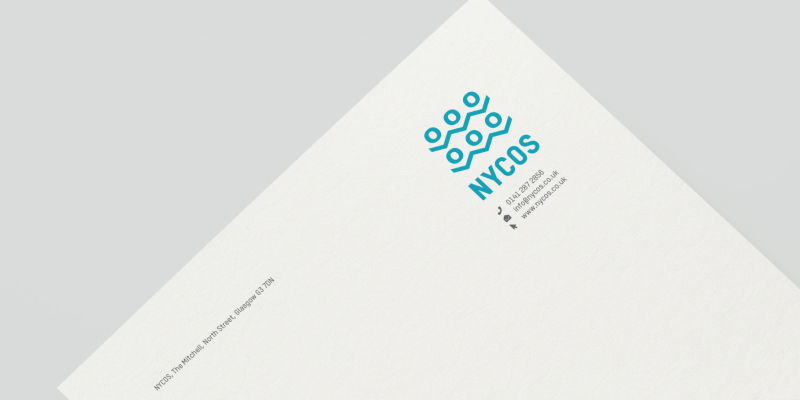On 30 June 2020 NYCOS along with 28 other notable individuals and organisations sent an open letter sent to Fiona Hyslop MSP, Cabinet Secretary for the Economy, Fair Work and Culture. The letter, included below in full, asked for the support of the Scottish Government to “help Get Scotland Singing Again in a planned and responsible way”.
Dear Ms Hyslop
Get Scotland Singing Again
Scotland has a rich choral tradition. Currently hundreds of choirs pervade in all areas of Scottish life with singing taking place in a wide range of settings including schools, places of worship, community halls and concert venues. Choral singing is a force for good. It has no barriers to participation and can provide a life-long fulfilment to participants through a sense of purpose and belonging. It promotes teamwork, social skills and enhances individual well-being. For many directors and professional singers, it is their primary source of income.
The Covid-19 pandemic has had a devastating impact on the cultural life of Scotland, with no choral singing possible at the present. As we move through the phases of Scotland’s Route Map through and out of the crisis we would like to ask for the support of Scottish Government to help Get Scotland Singing Again in a planned and responsible way.
We are strongly concerned that at this time all singing seems to be suffering bad press, triggered by reports relating to case clusters associated with a very small number of choirs in the early stages of the pandemic. Currently no definitive published research exists on the possible extent of transmission of the virus through the aerosol/droplet generation which takes place during singing. Evidence from recent studies undertaken in Freiburg and Vienna indicate that the dispersal rates of aerosol and droplet emissions from singers may be more limited than originally thought. At present the assessment of possible risk of viral transmission from choral singing is based mostly on assumption rather than science, indeed it has not been established that the act of singing in a group is any more likely to cause transmission than talking face to face.
Choral singing has already resumed in some European Countries. We believe that choirs in Scotland will only be able to resume singing once they have engaged in a robust risk assessment process which gives consideration to how best mitigate the spread of the Covid-19 virus should an infected person(s) be present in the group. Consideration of social distancing, room ventilation, personal hygiene (handwashing) and the possible use of face masks will be important in this regard. Choral singing comes in all shapes and sizes, which is why we believe that a blanket ban is not appropriate and that the way forward lies with individual choirs taking responsibility for their activity within staged Scottish Government guidelines.
For those involved in professional singing, including choral directors, the current moratorium on singing has severe financial consequences. Testing for the virus could be a way for Scotland’s professional groups to begin work again immediately in controlled settings, from where their work could be broadcast to universal benefit. However, at the same time many thousands of children who sing in choirs, whether they be in schools and universities, in the churches or cathedrals, or in the many community ensembles large and small, are being educationally disadvantaged as well as suffering implications for their general well-being.
We hope that the Scottish Government is able to support our desire to Get Scotland Singing Again. We would be very willing to provide advice and assistance and would welcome the opportunity to have a dialogue with Scottish Government to plan and enable a staged return to singing, correlated to the phases of Scotland’s Route Map, informed by the latest scientific research and supported by a robust and balanced assessment of risk.
Yours sincerely
Gregory Batsleer, Chorus Director, RSNO, Chorus Director SCO
Michael Bawtree, Director, Edinburgh Royal Choral Union, Edinburgh University Chamber
Choir, Glasgow Chamber Choir
Christopher Bell, Artistic Director, NYCoS
Nicola Benedetti CBE, Violinist & Founder and Artistic Director of Benedetti Foundation
Chris Bragg, Head of Programming, University of St Andrews Music Centre
Karen Cargill, Mezzo-Soprano
Katy Lavinia Cooper, Director of Chapel Music, University of Glasgow
Timothy Dean, Director of RCS VOICES, Royal Conservatoire of Scotland
Eamonn Dougan, Director, Cumnock Tryst Chorus; Associate Conductor, The Sixteen
Michael Downes, Director of Music, University of St Andrews
Duncan Ferguson, Organist and Master of the Music, St Mary’s Cathedral, Edinburgh
Andrew Forbes, Director of Music, Glasgow Cathedral
Laura Gardiner, Director – Benedetti Foundation
Michael Harris, Organist and Master of the Music, St Giles Cathedral, Edinburgh
Mark Hindley, Director Scottish Vocal Ensemble
Claire Innes-Hopkins, Director of Chapel Music, University of St Andrews
Iain McLarty, Musical Director, The Scottish Chamber Choir
Sir James MacMillan
George McPhee, Director of Music, Paisley Abbey
Andrew McTaggart, Cumnock Tryst Chorus Master and Musical Director of Ayr Choral
Union and Greenock Philharmonic Choir.
Paul Mealor, Professor of Music, University of Aberdeen
Aidan Oliver, Director, Edinburgh Festival Chorus
Shonagh Stevenson, Chair, Heads of Instrumental Teaching Scotland
Jonathon Swinnard, Chorus Master, Scottish Opera
Kenneth Taylor, Headteacher, St Mary’s Music School
Frikki Walker, Director of Music, St Mary’s Cathedral, Glasgow
John Wallace, Music Education Partnership Group
Susannah Wapshott, Music Director, Helensburgh Oratorio Choir
James Waters, Creative Director Classical Music, Perth Concert Hall & Director
Lammermuir Festival

